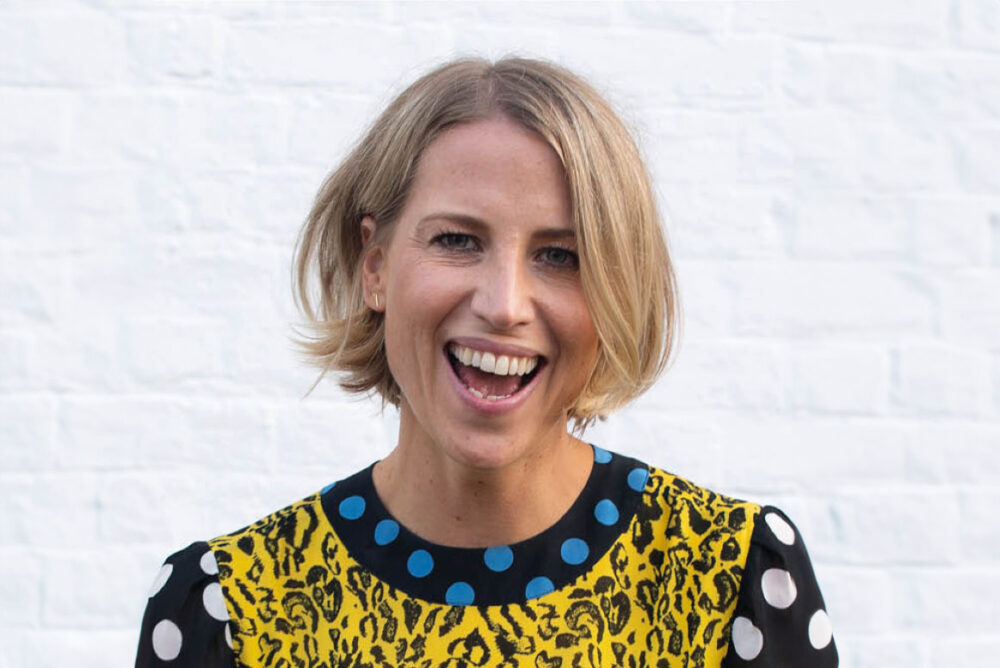A rise in environmental consciousness among consumers and the cost of living crisis has enabled pre-loved and second-hand fashion businesses like Vinted to start making profits.
However, this has not stopped the fast fashion industry from also continuing to grow, with brands such as Shein announcing international expansions. So which business model will win?

Changes in consumer demand – what does this mean for the fashion industry?
A report by RetailX shows that 86% of UK fashion consumers want their clothes to be made ethically and 72% of them, sustainably. Growing concerns around sustainability in addition to the cost of living crisis has created the perfect conditions for Vinted to succeed – and it is – as the second-hand clothes business announces it has turned its first profit. Through its success, the company is turning the idea that sustainable fashion is a) not trendy and b) expensive, on its head.
Global sales of pre-owned clothes surged by 18% last year to $197bn (£156bn) and are forecasted to reach $350bn in 2028. However, the fast fashion industry’s global emissions are still expected to rise by 50% by 2030 and it is already responsible for 20% of global waste water. This is because although there has been an increase in second-hand fashion sales, research by Zalando suggests that an attitude-behaviour gap still remains, and only 23% repair their own clothes and 25% regularly buy second-hand.
The culture of overconsumption that persists in the fast fashion industry is inherently unsustainable: a combination of low quality, “throw away” clothing and fast trend cycles means that consumers want to update their wardrobes as frequently as possible to replace damaged and out of trend clothing. Consumers cannot embrace circularity unless quality improves and hype around new trends slows. It is clear that something must be done to drive a cultural shift that will encourage a more circular and sustainable approach to fashion.
With rising environmental consciousness, the fashion industry must respond to these changing consumer demands and expectations. This calls for businesses within the industry to change their corporate strategy and embed purposeful action within their decision-making – something that Vinted is doing brilliantly.
Adopting purpose as a management approach for profitably solving the problems of people and the planet, backed up by strategy and action, Vinted is now reaping the commercial rewards, without the worry of being criticised for unethical, unregulated practices such as greenwashing.
How purpose can drive a more sustainable fashion consumption
It’s commonplace for high street brands like Zara, Primark and H&M to embrace circularity by offering clothes repair and trade in services, and while these are viewed positively, the success of Vinted as a resale market overshadows them significantly. Despite the fanfare, many businesses have since scaled back on their efforts and made it less of a priority. This is likely because not enough companies have put these services at the forefront of their brand. With their new collections being prioritised through their marketing and sales efforts instead of their resale offer, overall consumer awareness is limited.
It is also likely that consumers are reluctant to support and truly believe in high street brands’ sustainability efforts, due to the frequent issues of greenwashing that have permeated the fashion industry, with brands such as Asos and Boohoo called out for greenwashing in recent years.
The opportunity of influence for the fashion industry
Considering the influence that fashion holds on culture and consumption, it also holds the power to influence positive decision-making and help educate consumers to make better choices that can ultimately benefit the planet. In fact, a survey we carried out in collboration with Zalando also found that consumers expect the fashion industry to help them make more sustainable choices.
Promoting reuse and loving our clothes for longer is a key way to driving a cultural shift that removes the desire to buy new clothes every week. In time, this should mean that fast fashion brands start to shift their models as Vinted and other sustainable fashion businesses accessibly drive a more circular approach to fashion.
Whilst promoting the environmental benefits of second-hand clothing, Vinted is taking a consumer and planet-first approach, by not only catering to the demand of a growing climate-conscious clientele, but also keeping consumers’ financial incentives in mind.
Embedding a management approach which incorporates a higher purpose into all decisions will create longer-term business resilience by attracting a whole new group of climate-conscious consumers.
Final thoughts
With a growing need for climate-conscious clothing, fast fashion businesses need to look to solve the issues being created by their industry’s long-standing practices, and equally, those facing their consumer base, to reorient their corporate strategy and become a truly purpose-driven business. Vinted’s corporate strategy and resulting success in profits is proof of that fact that purpose-driven decision-making is the missing piece of the puzzle in fashion.
















